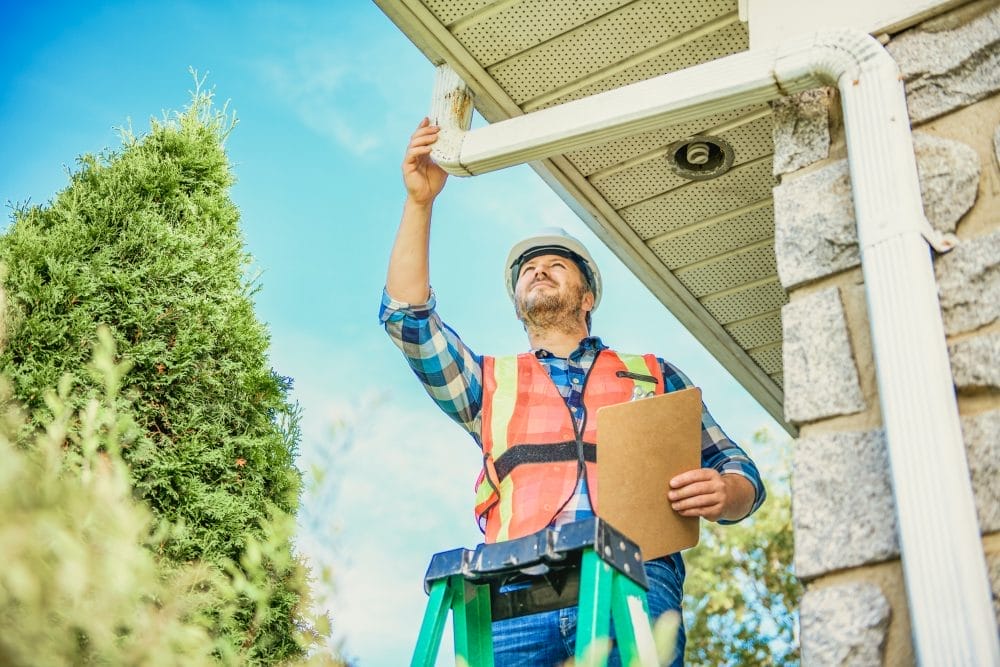Buying a home feels like a thrilling adventure—keys dangling, dreams unfolding, and Pinterest boards ready for action. But tucked behind the polished walls and staged furniture lies a quiet figure with a flashlight: the home inspector. They’re the ones crawling through crawl spaces, poking at attics, and scanning outlets with tools that look like gadgets from a spy movie.
Their job? To document facts, not to deliver dramatic warnings. And that means there are things they notice but can’t legally tell you straight up—even if those silent red flags could shape your entire decision.
1. “This House Is a Money Pit”
A home inspector can point out cracks, leaks, or electrical issues, but they can’t label the property as a financial disaster. The phrase “money pit” leans too far into personal opinion, which inspectors must avoid. Their role is to describe conditions, not to forecast your future repair bills. Still, if they note repeated water damage, multiple structural concerns, or aging mechanical systems, the writing may already be on the wall. Buyers have to connect the dots without the inspector spelling out the grim financial reality.
2. “The Seller Tried to Cover Something Up”
Inspectors often spot freshly painted basements, brand-new drywall patches, or suspiciously placed rugs. But they cannot outright accuse sellers of hiding flaws, even when the evidence seems obvious. Their reports stick to visible, verifiable facts rather than intentions or motives. The moment an inspector speculates about deception, they could face liability. Instead, they’ll calmly note what they see, leaving it to the buyer to wonder why a certain wall suddenly got a makeover.
3. “This Place Is Infested”
Even if an inspector notices droppings, chewed wood, or a trail of ants, they’re not licensed pest control experts. They can’t diagnose or declare an infestation outright. What they can do is flag evidence of possible activity and recommend further evaluation by a specialist. That careful language keeps them within the boundaries of their certification. For buyers, though, the mention of “evidence” should be a signal to investigate before signing the dotted line.
4. “This House Isn’t Safe to Live In”
Declaring a property unfit for occupancy crosses into legal and municipal territory, not inspection. A home inspector can report missing smoke detectors, faulty wiring, or gas smells, but they can’t tell you not to move in. Their job stops at identifying potential hazards and advising professional follow-up. That might feel frustrating when safety concerns loom, but it keeps inspectors out of courtroom disputes. Buyers should read between the lines when a report lists multiple life-safety issues.
5. “You Shouldn’t Buy This House”
Perhaps the most obvious forbidden phrase is the one buyers secretly wish they’d hear: “walk away.” Inspectors cannot steer purchase decisions, even when the problems are glaring. Instead, they hand over a factual report and let buyers decide whether repairs are manageable or deal-breaking. Crossing that line would push them into financial advising, which isn’t their legal territory. At best, an inspector’s detailed list can make the choice clear without needing to say the words.
6. “This Will Cost You Thousands to Fix”
Home inspectors are not contractors, so they’re not allowed to assign repair prices. Predicting costs involves market rates, contractor quotes, and materials—none of which inspectors control. Instead, they’ll simply describe the condition, whether it’s a crumbling foundation or a leaking roof. Buyers must then call specialists for estimates before finalizing a decision. That’s why every vague “needs further evaluation” note in a report should set off financial alarms.
What Your Inspector Won’t Say Still Matters
Home inspectors aren’t in the business of drama—they’re in the business of facts. They avoid loaded language, accusations, and personal advice because their job is to observe, document, and recommend further review. Yet, even within those boundaries, their reports can scream louder than any forbidden warning. Every understated note has the potential to change a buyer’s future in the home.
Which of these “unsaid” warnings do you think is the most important to watch for? Share your thoughts or drop a comment below.
Read More
9 Things That Instantly Raise Your Property Insurance Premium
7 Things That Make Buyers Assume a Home Was Recently Flooded






We just got an offer on our house. The home inspector got us good! He said the support beams in basement needed replaced. He said the cracks on floor and walls need fixed. Among about 20 more things needed fixed. We had an engineer come in and check it. He said there was nothing wrong with it and is writing a letter for us free of charge. We lost the buyers and the house we put an offer on.